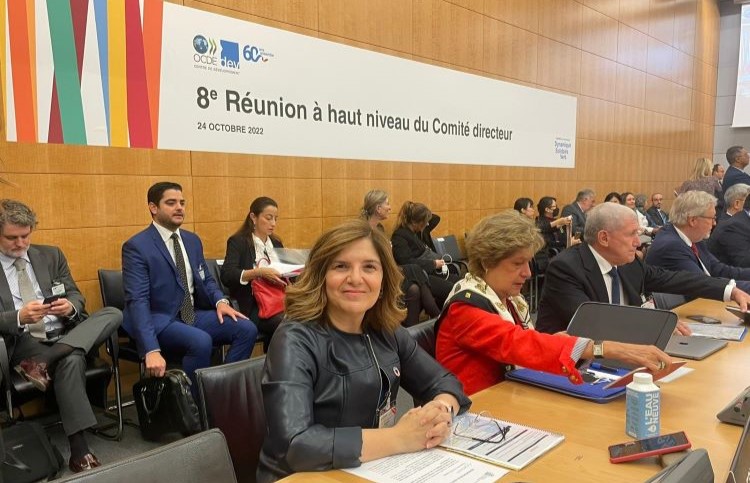The Diplomat
The State Secretary for International Cooperation, Pilar Cancela Rodríguez, has warned members of the Organization for Economic Cooperation and Development (OECD) that “the triple crisis of food, energy and financing” that we are currently experiencing, which “has accelerated with the Russian invasion of Ukraine”, is “delaying by several years” the achievement of many Sustainable Development Goals (SDGs) of the UN Agenda 2030.
Cancela spoke last Monday at the eighth high-level meeting organized by the OECD Development Centre in Paris, which took stock of the development challenges facing the world today and shared perspectives and strategies on three thematic areas of relevance to global development and the work of the Center: economic resilience, just green transition and gender equality.
According to the State Secretary, “the current triple crisis of food, energy and finance is wreaking havoc on the economies of developing countries”. This crisis “has accelerated with the Russian invasion of Ukraine and is seriously complicating global recovery, delaying the achievement of many SDGs by several years and placing several countries on the brink of a food crisis,” she continued.
“This current context, shows the risks of growing asymmetries and polarization in economic and international relations”, and, therefore, “we need a strong, inclusive and coherent multilateral system to overcome this crisis, with the leadership of institutions such as the United Nations and the OECD,” she added.
During this meeting, the 60th anniversary of the OECD Development Centre was commemorated, with an analysis of the achievements made during this time and the fundamental objectives for the coming years. During the meeting, Development Centre members pledged to promote the effectiveness, transparency and impact of the Development Centre’s work in the coming years.
The OECD Development Centre currently has 55 members, which include most OECD countries and 29 emerging countries from Africa, Asia and Latin America. According to AECID, the Center is a pioneer in the field of development and is positioned as a unique space for dialogue that brings together its members on an equal footing to seek new ideas and policy solutions. It also serves as a support for policymakers to make more informed decisions that take into account underlying development issues.






